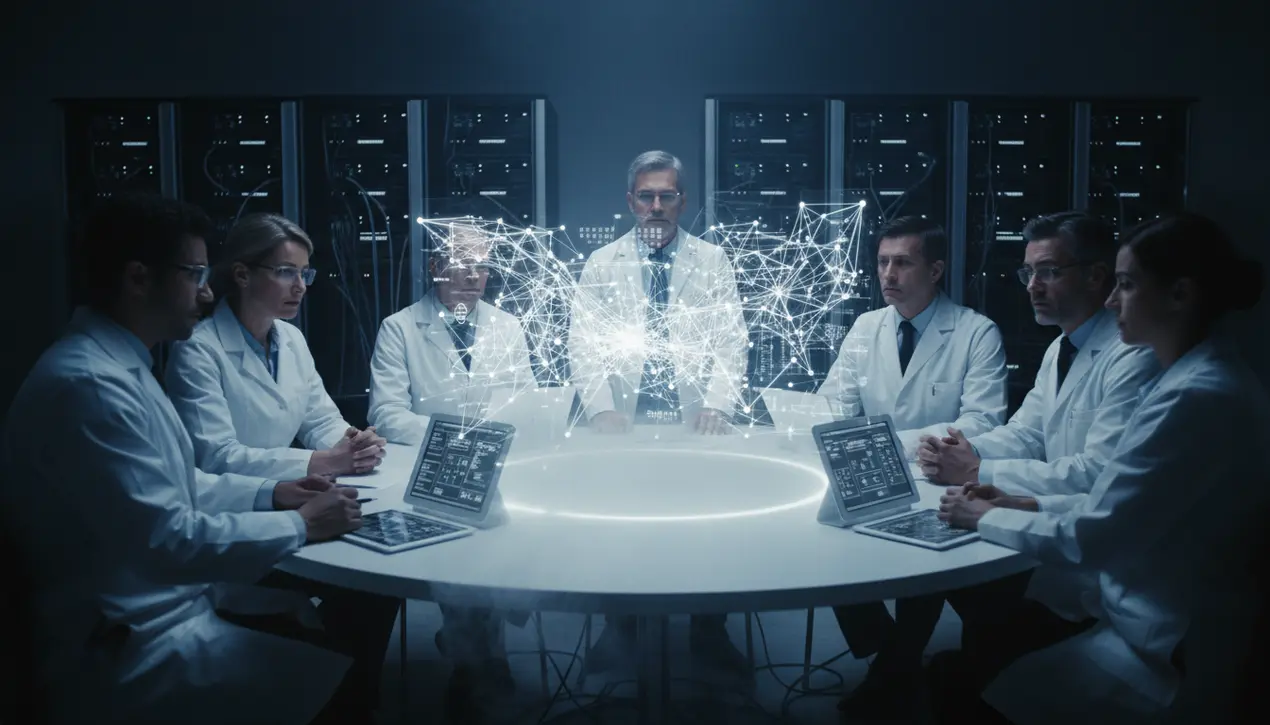
AIenterprise aiAI in Manufacturing
What enterprises should know about the White House's new AI 'Manhattan Project'
MI
Michael Ross
2 hours ago7 min read
When President Trump unveiled the Genesis Mission on November 24, 2025, invoking the spirit of the Manhattan Project, he wasn't just announcing another government initiative; he was launching a philosophical experiment at the intersection of national ambition and technological ethics. This executive order, which directs the Department of Energy to weave the nation's 17 national laboratories, federal supercomputers, and decades of scientific data into a single 'closed-loop AI experimentation platform,' represents a fundamental shift in how discovery itself is conducted.The administration's framing is one of unadulterated progress—a tool to accelerate everything from biotechnology to semiconductor research, doubling R&D productivity, as Under Secretary for Science Darío Gil claimed. Yet, for those of us who follow AI policy with a keen eye on Asimov's Three Laws, the Genesis Mission presents a classic tension between opportunity and risk, between open scientific inquiry and controlled, security-focused development.The aggressive timeline—with mandated demonstrations of initial capability within nine months—echoes the wartime urgency of its atomic predecessor, but the absence of a public cost estimate or explicit appropriation is a glaring omission that fuels legitimate skepticism. Is this a genuine public good, an 'engine for discovery' for the American people, or a sophisticated subsidy for private AI labs buckling under the staggering compute costs of the frontier model race? The collaborator list reads like a who's who of AI's ruling class: OpenAI for Government, Anthropic, Google, Microsoft, NVIDIA.These are the very entities reportedly facing unsustainable financial trajectories, with leaked documents suggesting OpenAI alone lost $13. 5 billion in the first half of 2025.By constructing a national-scale AI platform that mirrors the private infrastructure these companies are spending billions to build, the government is undeniably creating a potential lifeline. The order meticulously outlines standardized agreements for intellectual property and licensing, effectively building the legal runway for deep public-private integration, yet it remains conspicuously silent on subsidized access or open-source development.This silence is particularly striking given Vice President JD Vance's prior Senate testimony, which many interpreted as sympathetic to open-source AI and skeptical of policies that entrench incumbent advantages. Instead, Genesis is woven with national-security threads—classification rules, export controls, stringent vetting—placing it firmly in the realm of restricted operations rather than open science.The vision of 'autonomous scientific agents' generating hypotheses and directing robotic labs is a breathtaking leap toward automated discovery, but it also centralizes immense power. For enterprise leaders, Genesis is a clear signal that federal norms for data governance, AI pipeline observability, and security are coming, likely influencing compliance in biotech, energy, and pharmaceuticals.The mission's architecture, emphasizing federated data and closed-loop experimentation, previews the complex, orchestrated systems that will become industry standards. However, the unresolved questions of funding and access mean we are watching the launch of a moonshot whose ultimate trajectory—toward public benefit or private gain—remains dangerously undefined.
#Genesis Mission
#AI infrastructure
#federal AI policy
#closed-loop experimentation
#enterprise strategy
#featured
Stay Informed. Act Smarter.
Get weekly highlights, major headlines, and expert insights — then put your knowledge to work in our live prediction markets.
Related News
Comments
Loading comments...
© 2025 Outpoll Service LTD. All rights reserved.